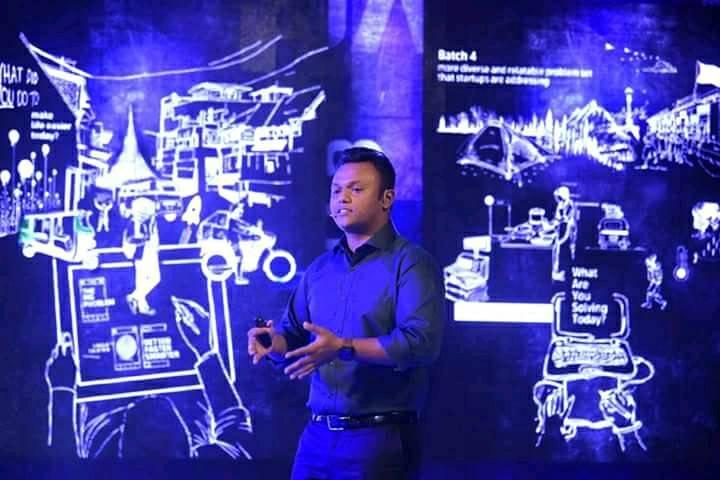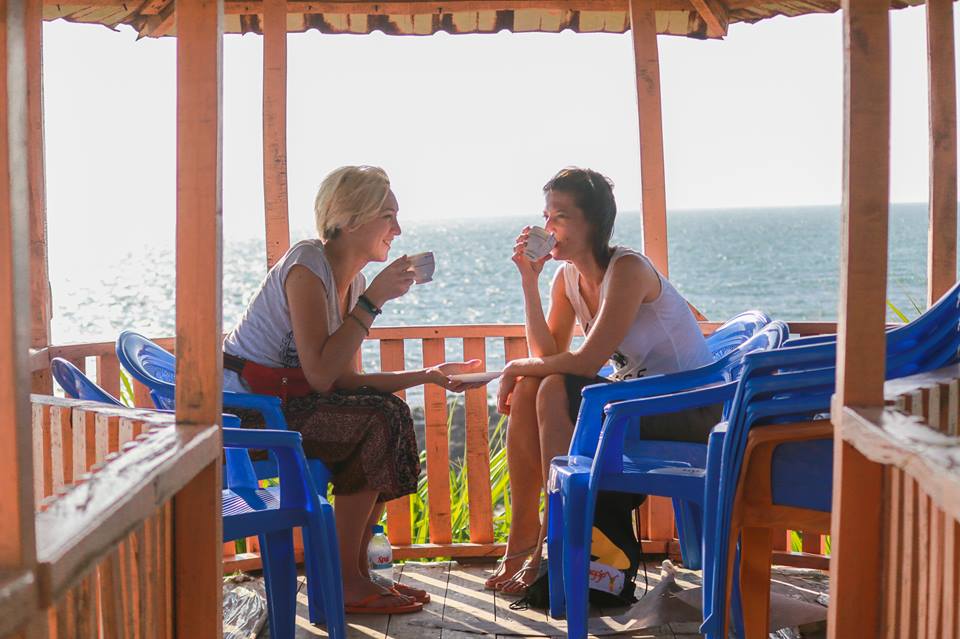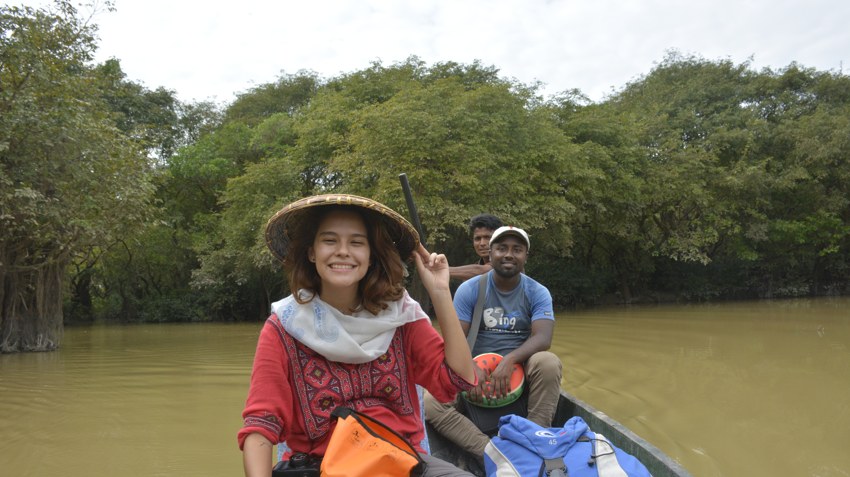
Nazmul Islam is the founder and CEO of Avijatrik, an alternative tourism company based in Dhaka, Bangladesh. Founded in 2015 with an ambition to promote local travel experiences in Bangladesh, Avijatrik provides holiday experiences in different parts of Bangladesh. The company provides both traditional tourism services and community tourism services, where it collaborates with the local community, allowing travelers a chance to stay with the local community, experience new cultures, and lifestyles. The company can be called Airbnb of Bangladesh.
In the past years, the company has raised multiple rounds of investments and went through incubator programs such as YY Ventures and GP Accelerator. Today, the company looks to expand its coverage and grow its community tourism business in collaboration with local communities across the country. We recently caught up with Nazmul to learn more about his journey and Avijatrik’s path forward.
I have been a traveler throughout my life. I started serious traveling when I was an intermediate student. I have traveled almost all over Bangladesh. My love for traveling eventually inspired me to start a travel startup. I was a second-year undergrad student when I started my first venture - a traditional travel agency. After running that business for almost a year, we realized that we wanted to do something different and there is a huge opportunity to make a difference in the local tourism industry.
When we started Avijatrik, I was a BBA final year student. It was tough to continue both my studies as well as the business. But I have been lucky to have my co-founders supporting me throughout the journey.
In 2015, we participated in the YY Gosthi Social Business Challenge and became the winner. We got a fund to develop our initial concept and free office space along with mentorship from YY Gosthi. That’s how we got started. We spent the time traveling across the country, visiting different communities to build the operation, learn local secrets, and building the supply chain. We went door to door in different communities in different parts of the country to onboard them for training and tourism development. While we thought it would be easy, it turned out to be a difficult challenge. We received relentless rejections. We were perplexed and had no clue. After much soul-searching and speaking with community members, we came to know two things: one, local people don’t essentially trust us because they don’t know us, and two, people generally fear change.
That’s how we came to having partners. We realized that we need partners who are familiar with local communities and who local people trust. That’s how we partnered with a few NGOs including Relief International to build a connection with the communities. We went on to collaborate with these NGOs in their existing community-based projects. We worked on some exciting projects with them and we built some tour offerings as a prototype in the process. After almost a year of learning and building a supply chain, we launched an early version of Avijatrik in 2016 targeting only inbound foreign travelers.
We tested the prototype product with a handful of foreigners for a while to understand the nuances of the services. After the success of the prototype, we formally launched the operation with 20 tour packages and customized tour services for both foreigners and domestic travelers in 2017.

On average, both off and on the season, we serve more than 150 travelers per month with travel services (experiences) and more than 600 customers in our holiday homes around Bangladesh.
We work exclusively with local tourism entrepreneurs and the local community. Avijatrik does not have collaboration with large travel service providers such as Palace, Dusai, Grand Sultan, etc. Instead, we have worked and developed our own supply chain to provide authentic experience maintained by a community or a local family so that we can provide sustainable income to at least one family. You can call it Alternative Tourism. To travelers, we provide an opportunity to experience raw and authentic nature, culture and contribute to the rural economy.
We currently have two products - experiences and holiday homes. Experiences are the tour packages and Holiday Homes are the unique accommodation service that comes with a unique experience. For example, we have a forest bungalow, beachside cottage, riverside villa, luxurious private villa, guest house of tea garden, or a guest house in the middle of a massive mango garden. We have consultants and a team of experts to turn each of the holiday homes into professional resort and vacation rentals.
Holiday Homes are the accommodation and tourism facilities built and maintained by local communities. All the homes are secured, hygiene, and aim to provide a unique holiday experience. You can find lots of tourist spots near any of our holiday homes. While traveling to exotic destinations in Bangladesh you can stay in a comfy, secure house and vice versa.
We have not invested much in technology as yet. This has an intentional choice as part of our lean operation strategy. While travel tech sounds lucrative and interesting, the market in Bangladesh is not yet fully ready for travel tech. However, there is a slow and steady change happening in the market. A growing number of customers are today using tech to avail of travel services. We are working on the next version of our platform which we are calling Local Tourism Marketplace. We want to onboard every local tourism entrepreneur and integrate their services into our marketplace. We are building Bangladesh’s first activity-based tourism platform and one of the few local tourism marketplaces around the world.
We also plan to launch our mobile application mid this year with an enhanced tracking system, safety features, detailed tour planning option, and virtual tour guide.
Currently, we are a team of 18 people working full time and growing every month. We offer flexible work hours and people are given enough space to do their best work. There are the days when we work 12 hours a day during peak season and there are days when we chill.
We have built a culture where teamwork takes precedence over everything else. It has helped us accomplish tasks that appear daunting. The other important component of our culture is learning. Most of the work we do is new in nature. As a result, we require a certain amount of resilience in people to learn and adapt while working.

When it comes to marketing, we are predominantly on digital channels and relationship marketing. That’s where we pay the most attention to customer acquisition.
We also invest a lot in providing the best service to our customers, which we believe is the best and most effective marketing channel there is. We believe if we could make our customers happy, they would intern tell good things about us and send new customers our way.
It is always helpful to have people around you who are supportive and understand your challenges and limitations. I have been lucky to have my co-founders who have been super supportive throughout the journey. I have never been alone in facing challenges when it comes to business, we have been together. It is a great relief when you know at your core that you are not alone.
First of all, solve a real problem. Build your solution for your customers, not for yourself. Know your customer like your girlfriend. Talk with them. Finding a real solution is not easy. It will take both time and effort.
Early-stage entrepreneurs think that funding is the most important thing and without funding, they will die. My suggestion would if you cannot find a cheaper way to start your venture, you are not an entrepreneur yet. You need to find ways to get the resources that you’ll be buying with that money. Focus on getting those resources without money or in a cheaper way instead of paying for them.
We started Avijatrik with almost no money. We worked from home for almost a year with a Desktop computer. When I could afford a graphic designer I learned graphic design myself. I learned about web development when I could not afford a developer. It’s the only way to succeed. There is no shortcut.
You should apply to get featured at Future Startup.
We’re looking for entrepreneurs building profitable businesses and side projects to feature at FS. If you are building one, come share what you’re working on, and let us help you to reach out to customers, potential partners, and the world. Simply fill out this form, we will reach out to you.
Not ready to get started on your own yet? No problem. Read our interviews and insights. Learn. Share. Feel free to just browse!
—
Ruhul Kader, Future Startup Founder
